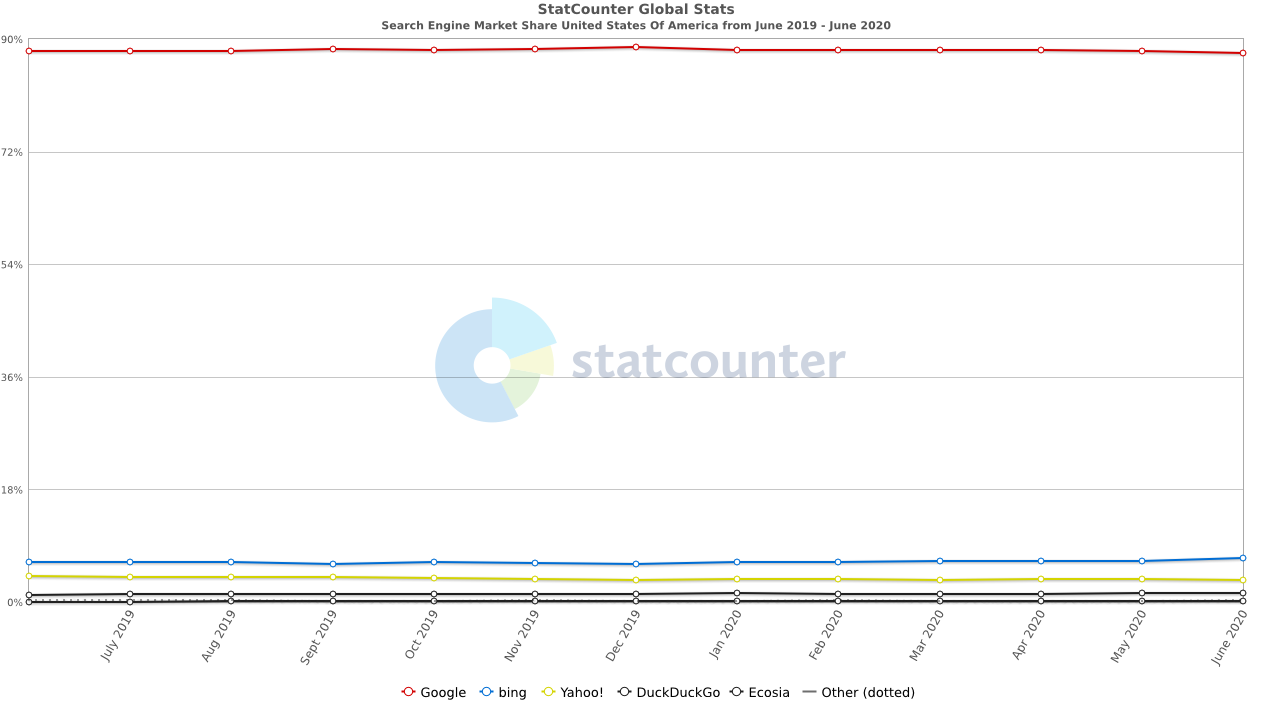Search Engine Optimization (SEO): Web Content
Posted: 7/26/2020
Search engine optimization (SEO) is the process of creating content that ranks at the top of any search engine. The results are often referred to as organic search, because results are coming back organically from the search engine, and you are not paying Google to show up as the top search result. SEO is critical for website success, as end users typically only click on links provided to them on the first page of search engine results. SEO can seem complex, and even frusterating at times, however if you create quality content that people want - you will be successful. This blog post outlines some of the basic considerations when writing content for search engines.
Topics covered
- Search Engines
- Content and HTML Tags
- Researching Content and Keywords
- Analytics and Measurement
What is a search engine?
A search engine is an application which returns content from across the internet based on a query input by an end user. It processes a query and returns results that include, but are not limited to, web pages, videos, images, and locations. This basic input / output is how a search engine operates - you type in keywords or phrases, and Google returns relevent information. The goal of any search engine is to return information to the end user, fulfilling it's serach funcatinoality. In order for search engines to work properly, website managers and content creators need to create quality content that will be indexed and served when a query or keyword triggers the search engine to return the website in search results. Google is currently the largest search engine on the internet today.
Search engines are built to understand content
Content is an important aspect when it comes to a search engine. Google accounts for roughly 90% of all search traffic in the United States, so there isn't much competition. Google's search dominance is represented by the red line on the chart below from statcounter.com.
Search engine optimization can be a time-consuming effort, and focusing on the top platform in search will give you the largest benefit for your time. With that said, writing focused and unique copy for your website will help you perform on all search engine platforms. Copying information or mimicking the writing of others on the internet is frowned upon, and Google will not rank websites that are considered duplicates. Duplicate content can occur on your own website as well as on other websites. It is important to be original. Writing in a language for the general population, as opposed to focusing on Google algorithms is the best piece of advice I can give for improving search performance. Search engine algorithms are continually improving to understand natural language processing, so write for humans. Content is the cornerstone to all other search engine optimization efforts.
Proper use of HTML tags
HTML tags play an important role in communicating to search engines what your webpage is about. An H1 tag, or header tag with priority one, is the most important header for the page. The H1 tag tells the reader what all of the content on the page is about. Header tags that should be represented on all web pages are as follows: H1, H2, and H3. Anything after that will not be as impactful to the search engine. Header tags range from H1 to H6 for grouping content and sections of content. On the page you are currently reading "Search Engine Optimization (SEO): An Overview" is an H1 title, SEO Topics Covered is an H2 title, and all other paragraph headers below are H3 headers. This creates a structured flow to the content, and helps Google break out sections of your content to understand how the page is meant to be organized for the end user.
Discover more about header tagsResearching content and keywords
With the importance of keywords and content, Google supplies various tools for individuals to use for researching the popularity of keywords and topics. Creating content that is timely and relevent will help you rank highly in search results. The following tools allow content creators to hone in to their audience, and write content and information that is timely and relevant. Perhaps you are debating whether to add a new page of content on a specific topic, Google Trends would give you insight into how many people are actually looking for this information. Below is the search interest over the past 12 months for the topic "search engine optimization".
Using Google trends is fairly straightforward, and can be extremely powerful. You can utilize the tool to research various topics and keywords that users are searching for. Once you understand what people are searching for, you can create content to meet their needs.
Learn more about Google trendsMeasuring the effectiveness of your content
Measurement is a key to determining how effective your content is and how well you are doing with search engine optimization. There are many tools available to measure your website performance, however, the most important one to have set up correctly is Google Analytics. Google Analytics requires a small piece of JavaScript to be placed on all of your webpages enabling the collection of anonymous user information. In addition to Google Analytics, Google Search Console will be of significant value to those researching SEO as it displays information about keywords, click through rate, and position. All ranking factors and important metrics to understand on Google search. This information can help guide you to enhancing content users may be searching for but you rank poorly for in search. The two products should be set up at the same time and linked together. Once you have Google Analytics and Google Search Console set up correctly you can utilize Google Data Studio to generate reports. Each product is extremely intricate. You will need spend some time learning how to use each one in order to be proficient, and discover all that each platform has to offer.

